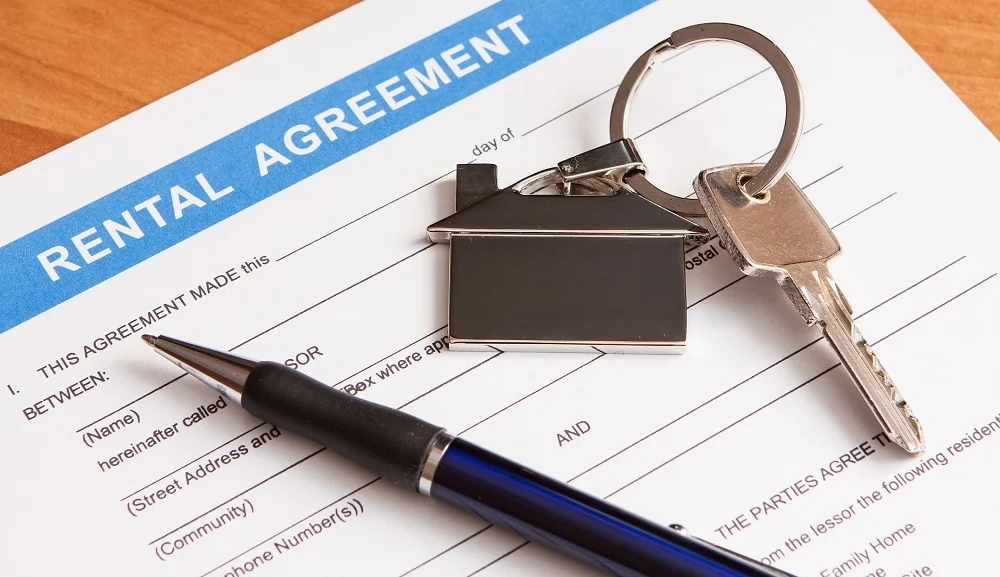Renting a property in the UK comes with specific rights and responsibilities for tenants. Understanding these is crucial for maintaining a good relationship with your landlord and protecting yourself against potential disputes. Here’s what tenants need to know about their rights and responsibilities according to property experts and leading letting agents in Wandsworth.
- Understanding the Rental Agreement
- Key Points to Look For in a Rental Agreement:
- Key Rights as a Tenant
- Right to a Safe and Well-Maintained Property
- Right to Quiet Enjoyment
- Protection from Unfair Evictions
- Right to Get Your Deposit Back
- Key Responsibilities as a Tenant
- Handling Repairs and Maintenance
- Dealing with Disputes
- Ending the Tenancy
- Final Thoughts
Understanding the Rental Agreement
A rental agreement is a legally binding contract between a tenant and a landlord. It outlines the terms of the tenancy, including rent payments, property maintenance, and conditions for ending the tenancy. Most UK tenants will have an Assured Shorthold Tenancy (AST), which offers specific legal protections.
Key Points to Look For in a Rental Agreement:
- Rent and Payment Terms: This should state the rent amount, due date, and payment method. Look out for conditions about late payments or rent reviews.
- Length of Tenancy: Understand the duration of the tenancy and the required notice period if you or the landlord wish to end it early.
- Deposit Protection: By law, landlords must protect your deposit in a government-approved deposit scheme.
Key Rights as a Tenant
It’s essential to know your rights to ensure fair treatment and safeguard your living conditions. Here are key rights tenants have:
Right to a Safe and Well-Maintained Property
Landlords must ensure their properties are safe and habitable. This includes maintaining services like heating, water, and electricity, and ensuring the property is free of hazards.
- Gas Safety: Landlords must provide an annual Gas Safety Certificate.
- Electrical Safety: Properties should have an Electrical Installation Condition Report (EICR).
Right to Quiet Enjoyment
Tenants have the right to enjoy the property without interference. Landlords must give 24 hours’ notice if they need to visit, except in emergencies.
Protection from Unfair Evictions
For tenants with an AST, landlords must follow legal processes for eviction, including appropriate notice and a court order. Illegal eviction is a criminal offence.
Right to Get Your Deposit Back
At the end of your tenancy, you are entitled to get your deposit back, provided you haven’t caused damage beyond normal wear and tear. Deposit disputes can be resolved through the deposit protection scheme.
Key Responsibilities as a Tenant
Tenants also have certain responsibilities. Fulfilling these ensures compliance with the tenancy agreement and helps maintain a good relationship with your landlord.
Pay Rent on Time
Paying rent in full and on time is your primary responsibility. If you face financial difficulties, communicate with your landlord or letting agent promptly to avoid complications.
Take Care of the Property
Tenants are expected to keep the property clean and in good condition. While landlords handle major repairs, tenants should deal with minor maintenance tasks, like changing light bulbs or keeping gardens tidy.
- Report Repairs Promptly: Notify your landlord immediately about any issues that require professional attention, such as leaks or electrical faults.
Adhere to the Terms of the Agreement
You must follow the conditions outlined in your rental agreement. This might include restrictions on subletting, owning pets, or making alterations to the property.
Respect Neighbours
Tenants are expected to respect their neighbours and avoid disturbances. This includes keeping noise levels reasonable and following local regulations for rubbish disposal.
Handling Repairs and Maintenance
Maintenance is an area where tenants and landlords often clash. Understanding each party’s role in repairs is crucial to avoid disputes.
Landlord’s Responsibilities for Repairs
Landlords must handle major repairs related to plumbing, heating, and structural issues. They should address safety-related repairs promptly.
Tenant’s Responsibilities for Minor Repairs
Tenants are generally responsible for small tasks like changing light bulbs or maintaining cleanliness. Avoid taking on major repairs without the landlord’s approval.
- Tip: Keep a record of all communications regarding repairs to help resolve any disputes.
Dealing with Disputes
Disputes often arise during a tenancy, typically over repairs, rent payments, or tenant behaviour. Handling these effectively can help ensure a smoother tenancy.
Communicate with Your Landlord
Open communication is key. If you have an issue, raise it with your landlord or letting agent in writing and keep a record of all interactions.
Seek Mediation if Necessary
If you and your landlord can’t reach an agreement, consider mediation services. Local councils often provide free mediation for tenants and landlords.
Know When to Get Legal Advice
If your rights are being violated or disputes escalate, seek legal advice. Organisations like Citizens Advice and Shelter can offer guidance.
Ending the Tenancy
Both tenants and landlords must follow the correct process when ending a tenancy. This involves adhering to notice periods and returning the property in good condition.
Giving Notice
If you plan to leave, give the correct notice as per your rental agreement. Typically, this means providing at least one month’s notice for a periodic tenancy.
Returning the Property
Before moving out, clean the property thoroughly, remove all belongings, and fix minor damages. Take photos as evidence of the property’s condition to avoid disputes over the deposit.
Final Thoughts
Understanding your rights and responsibilities as a tenant is essential for a positive renting experience. By reading and adhering to your rental agreement, communicating openly with your landlord, and fulfilling your obligations, you can avoid disputes and enjoy a secure tenancy.
Being aware of your rights helps you know what you’re entitled to while fulfilling your responsibilities and fosters a respectful rental environment. With this knowledge, tenants can confidently navigate their tenancy and resolve issues effectively.

















